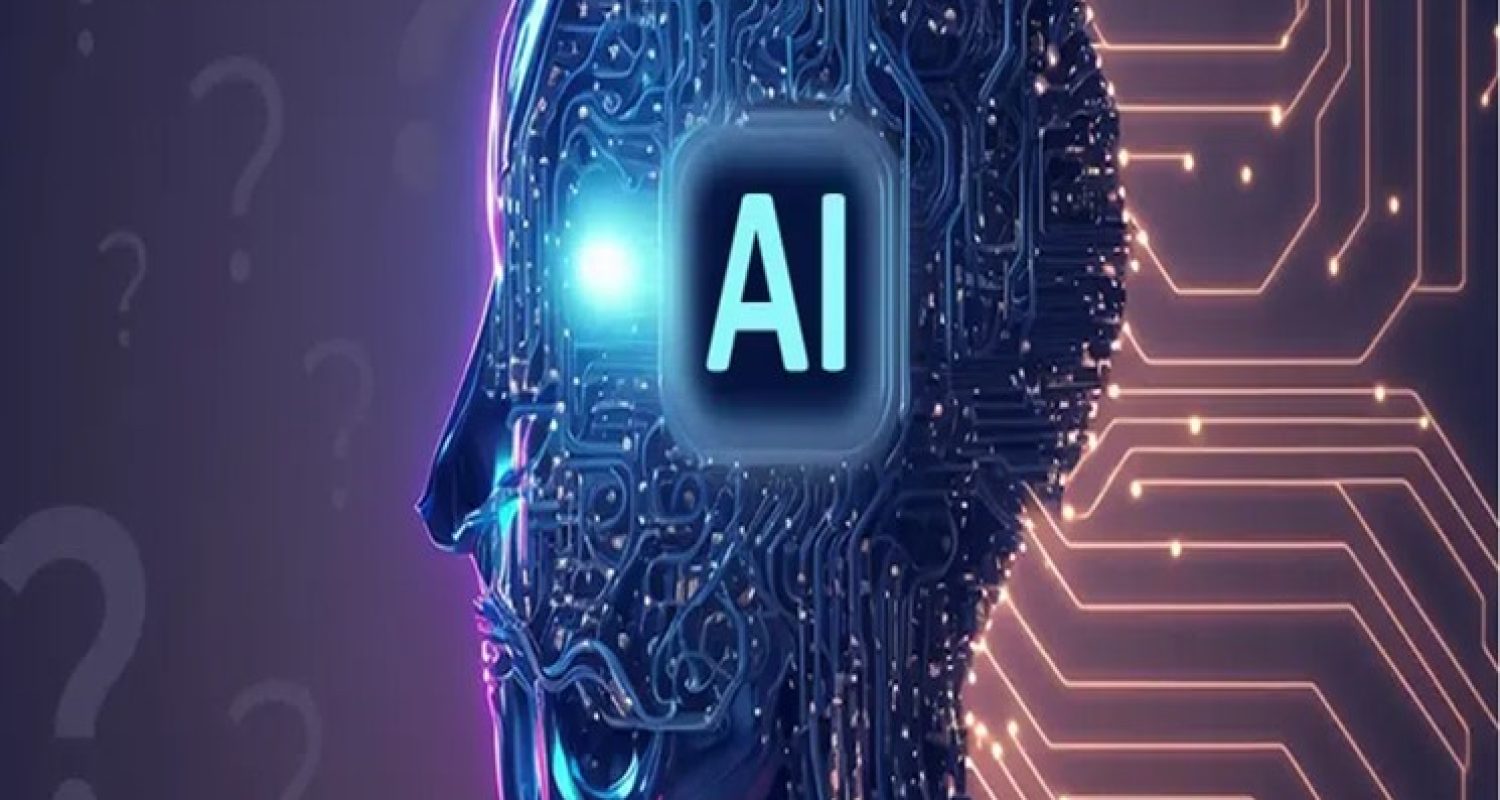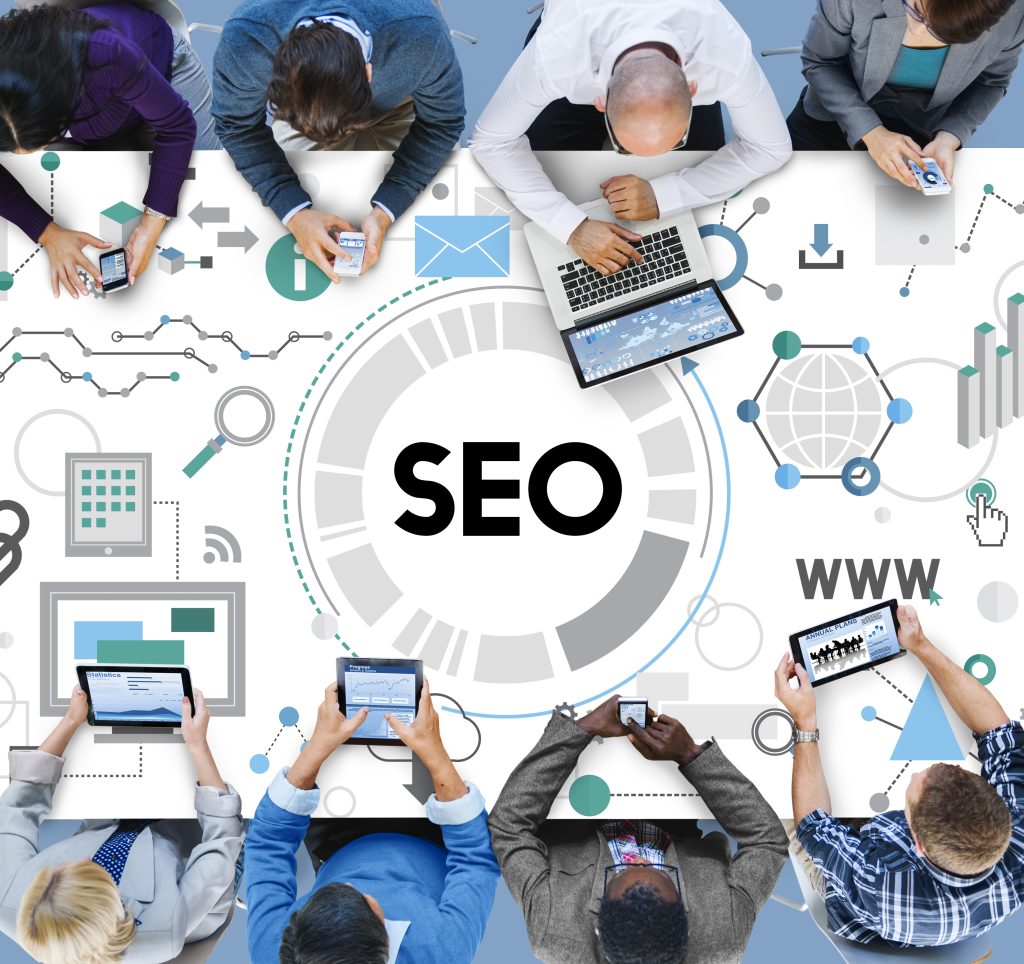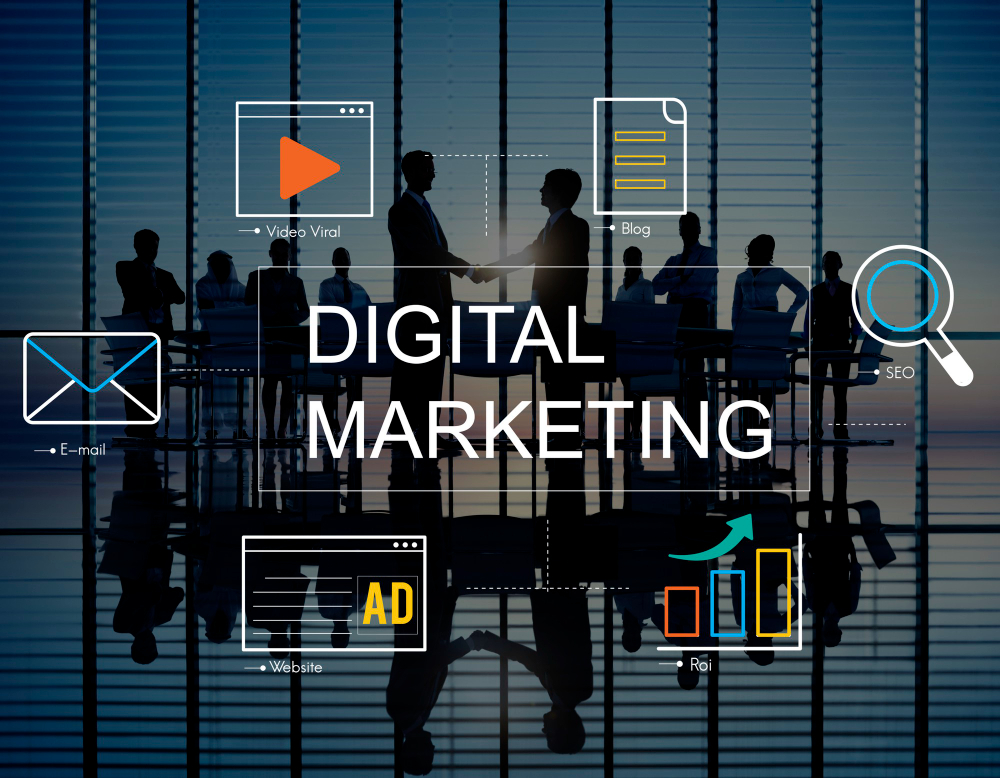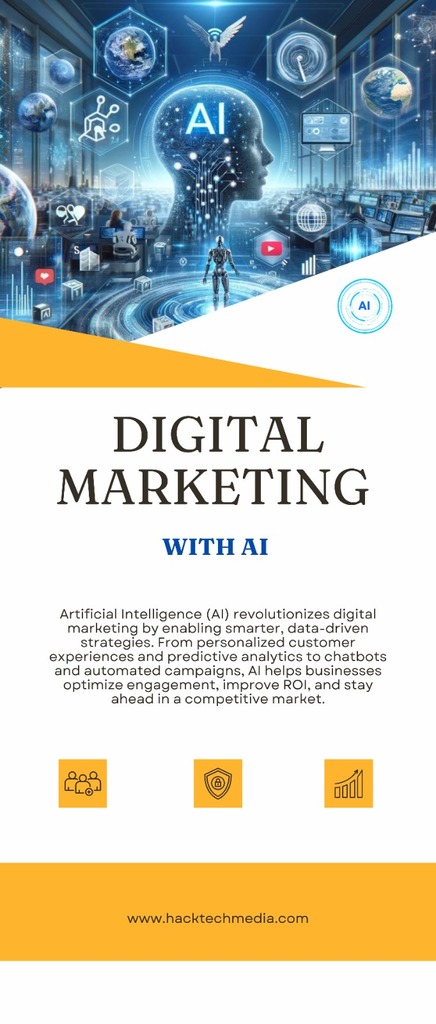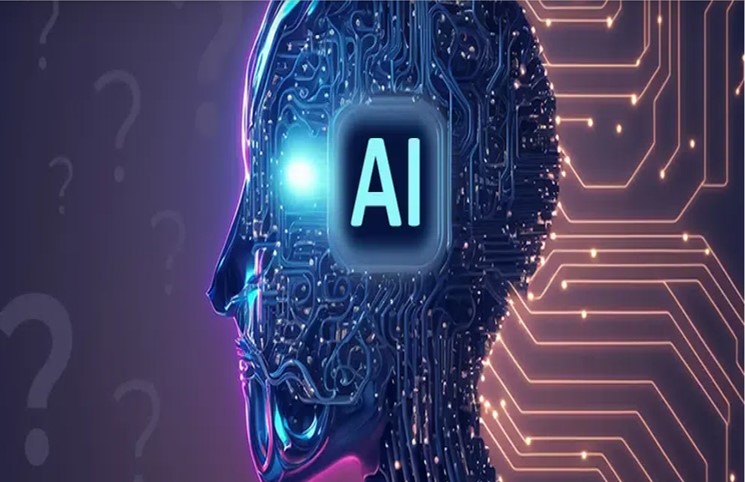
Introduction
Digital marketing has become an essential part of how businesses connect with customers in our increasingly online world. With the rise of artificial intelligence (AI), the way we approach digital marketing is transforming. In this blog post, we’ll explore how AI is shaping digital marketing and what that means for businesses and consumers alike.
Understanding Digital Marketing
What is Digital Marketing?
Digital marketing refers to the practice of promoting products or services through various online channels. It encompasses everything from social media advertising and email marketing to search engine optimization (SEO) and content marketing. The goal is to reach a targeted audience using digital platforms.
Key Components of Digital Marketing
- Search Engine Optimization (SEO): Helps your website rank higher in search engine results.
- Content Marketing: Involves creating valuable content to attract and engage customers.
- Social Media Marketing: Utilizes social platforms to connect with audiences and promote brands.
- Email Marketing: Direct communication with potential and current customers through email.
- Pay-Per-Click (PPC): A method of driving traffic to websites by paying for ad clicks.
The Role of AI in Digital Marketing
What is Artificial Intelligence in Marketing?
AI in marketing refers to the use of algorithms and machine learning models to analyze data, predict consumer behavior, and optimize marketing strategies. Essentially, it allows marketers to process large amounts of data more efficiently than manual methods.
How AI Enhances Digital Marketing Strategies
AI enhances digital marketing strategies by providing insights into customer behavior, automating tasks, and personalizing experiences. For example, AI algorithms can analyze past purchasing behavior to predict what products a customer might be interested in, which allows marketers to tailor their messages accordingly.
Benefits of Combining AI with Digital Marketing
Improved Personalization
One of the most significant advantages of using AI in digital marketing is the ability to deliver personalized experiences. AI algorithms can analyze user data to recommend products or content that align with individual preferences, making customers feel valued and understood.
Data-Driven Decision Making
AI supports data-driven decision-making by analyzing vast amounts of data quickly and accurately. Marketers can make informed decisions based on real-time analytics, leading to more effective campaigns. For instance, if data shows that a particular ad performed well in one demographic, marketers can increase the budget for that ad and target similar audiences.
Increased Efficiency
By automating repetitive tasks like data analysis and reporting, AI frees up valuable time for marketers. This allows teams to focus on strategy and creativity. AI tools can also manage ad campaigns in real-time, adjusting bids and targeting based on performance, which can significantly enhance efficiency.
Applications of AI in Digital Marketing
AI-Powered Analytics and Insights
One of the most practical applications of AI in digital marketing is analytics. Tools like Google Analytics use AI to provide deep insights into user behavior, website traffic, and campaign performance. This helps businesses understand what’s working and what’s not.
Chatbots and Customer Support
Chatbots powered by AI can handle customer inquiries 24/7, providing instant responses without human intervention. This not only improves customer satisfaction but also reduces the workload on customer support teams.
Content Creation with AI
AI tools can assist in content creation by generating ideas, suggesting topics, or even writing basic articles. While the creativity of human writers cannot be replaced, AI can enhance the efficiency of the process by reducing the initial brainstorming phase.
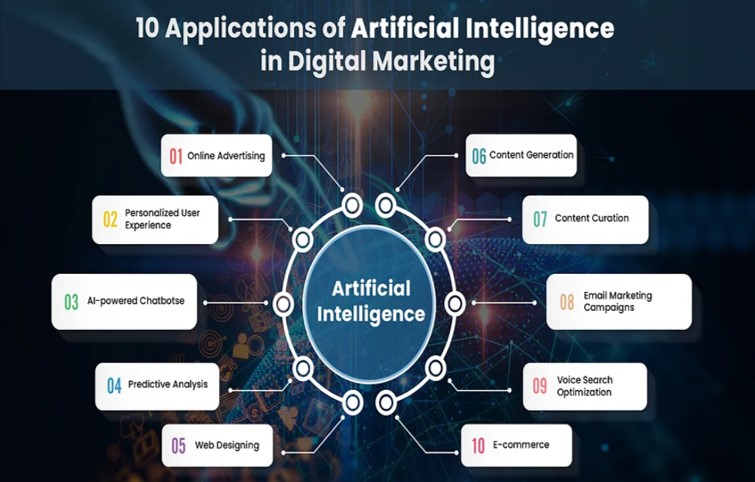
Challenges of Using AI in Digital Marketing
Data Privacy Concerns
The more data marketers collect, the greater the responsibility they have to protect it. Concerns about data privacy can arise, especially when using AI to analyze consumer data. Businesses must ensure they comply with regulations like GDPR to maintain trust.
High Initial Costs
Implementing AI technology can be expensive. Small businesses, in particular, may find the initial costs of AI tools and training to be a barrier. However, the long-term benefits often justify the investment.
Dependence on Data Quality
AI relies heavily on data to be effective. Poor quality or incomplete data can lead to inaccurate insights and flawed strategies. Businesses must prioritize data quality to maximize the benefits of AI in their marketing efforts.
The Future of AI in Digital Marketing
Emerging Trends in AI Marketing
As technology continues to advance, we’re likely to see more personalized marketing experiences, improved AI tools for analytics, and even greater automation of customer interactions. The future looks promising, with AI set to revolutionize how we understand and engage with customers.
How Businesses Can Adapt
To take advantage of AI in digital marketing, businesses should stay informed about the latest technologies, invest in training to understand how to harness AI effectively, and start small by integrating AI tools that complement existing strategies.
Conclusion
In summary, combining digital marketing with AI has the potential to transform how businesses interact with their customers. With improved personalization, data-driven decision-making, and increased efficiency, the future of marketing is bright. As businesses adapt to this change, they will not only enhance their marketing strategies but also create more meaningful connections with their audiences.
Embrace the change—after all, the integration of AI with digital marketing isn’t just about technology; it’s about creating a better experience for everyone involved.
Thanks & Regards
Written By Ashwini Kamble

